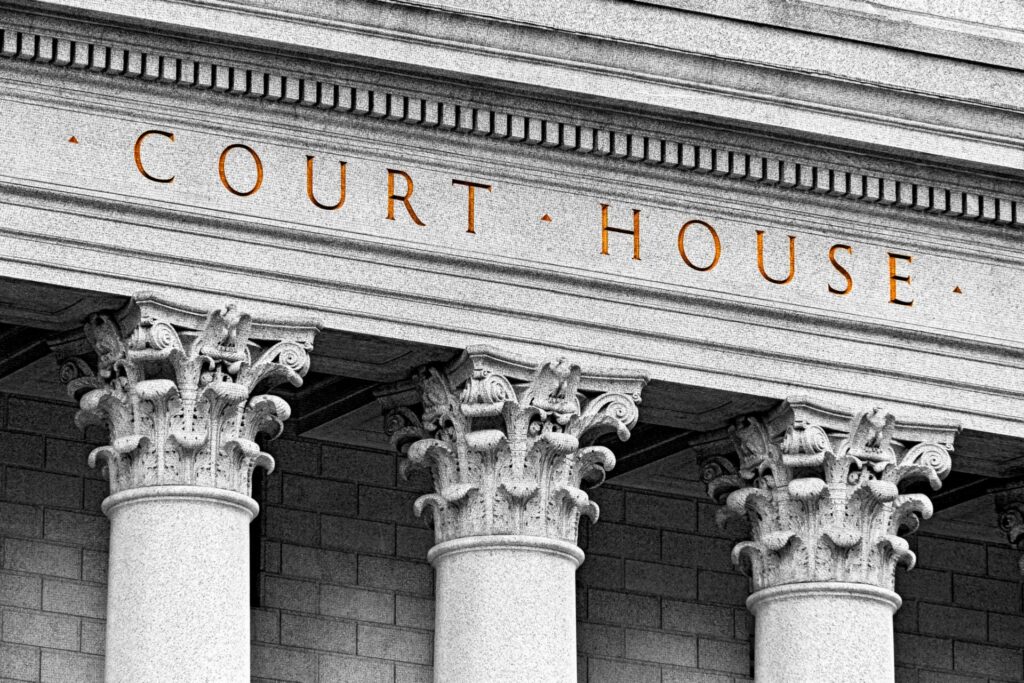Many of our recent blog posts have dealt with when, exactly, you’ve been “seized” by police. While this issue is not always clear, in large part because there’s a huge spectrum of police detentions, there have been a small set of bright-line rules that have come up over the years:
- It’s a seizure when police use deadly force,
- You’ve been seized when police bring you to the police station against your will,
- Police roadblocks and sobriety checkpoints are seizures,
- Everyone in the car is seized during a traffic stop, but
- It’s not a seizure when police question you in public.
Between these extreme cases, though, whether you’ve been seized by a law enforcement officer is tricky. Unfortunately, it’s also crucially important because only after you’ve been seized do your Fourth Amendment rights get triggered, potentially invoking the exclusionary rule for an unreasonable seizure.
However, rules from the Supreme Court regarding seizures are murky. How they apply to the recent case Maine v. Blier highlight how difficult they can be to use, in real life, and how far state courts are willing to go to avoid them.
The Murky Rules Regarding Police Seizures
In the leading Supreme Court case dealing with police seizures, the Court laid out what it means to be “seized” by law enforcement: “A person is ‘seized’ only when, by means of physical force or a show of authority, his freedom is restrained.” U.S. v. Mendenhall. This means that a person “has been ‘seized’ within the meaning of the Fourth Amendment only if, in view of all of the circumstances surrounding the incident, a reasonable person would have believed that he was not free to leave.”
However, applying this to individual cases is a mess, as Maine v. Blier shows.
Maine v. Blier
We’ve gone over exactly what happened in Blier before. However, some of the facts bear repeating.
Dale Blier was driving home when a police officer behind him saw that his car had a defective license plate light. The cop activated his “wig wag” lights, but Mr. Blier didn’t think he was being pulled over, so he drove another 860 feet and into his driveway. The officer only put on the cruiser’s flashing lights after Mr. Blier pulled into his driveway, and never activated the sirens. Mr. Blier exited his vehicle, entered his enclosed porch, and was inside his house when the officer started speaking to him, saying he was initiating a traffic stop, and that Mr. Blier “needed” to get his license and registration from the car. While Mr. Blier was getting those documents from his car, the officer smelled alcohol. He initiated field sobriety tests, which Mr. Blier failed, and then arrested him for operating under the influence (OUI).
Point of Seizure Never Discussed by Court
The Maine Supreme Court never discussed when, exactly, Mr. Blier was seized. Instead, they dodged the question by saying that any arrest would be justified by the fact that Mr. Blier was breaking the law by not pulling over for a police cruiser’s emergency lights, leading to the strange idea that a cruiser’s “wig wag” lights were the same as its lights and sirens.
Just when Mr. Blier was seized, though, is tricky. Because a traffic stop is a seizure, it would seem at first glance that Mr. Blier was seized when the officer told him he was initiating a stop for the defective license plate light. However, by that point, Mr. Blier was in his own home, not stuck in his car on the side of the road. Additionally, up until that point, Mr. Blier clearly had not felt like he was unable to leave – he’d continued driving and had entered his house.
In an attempt to dodge these complex issues, though, the Maine Supreme Court muddied the waters in this area of jurisprudence.
Maine Criminal Defense Attorney William T. Bly
If you’ve been charged with a crime in the state of Maine, including OUI, call the law office of criminal defense attorney William T. Bly at (207) 571-8146 or contact him online.


